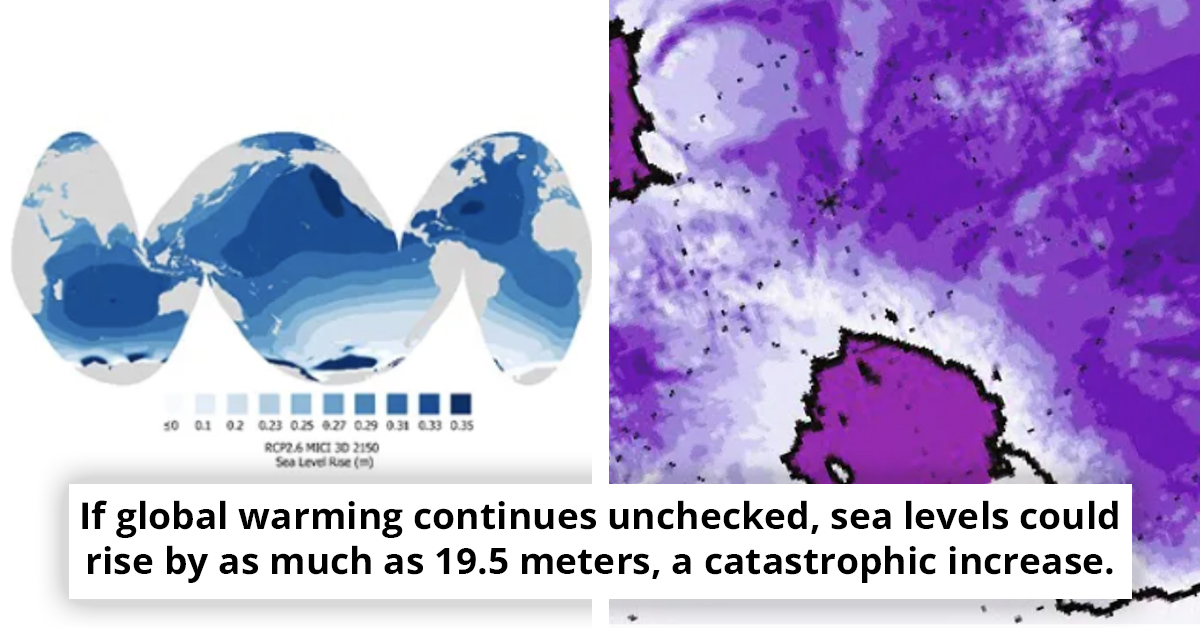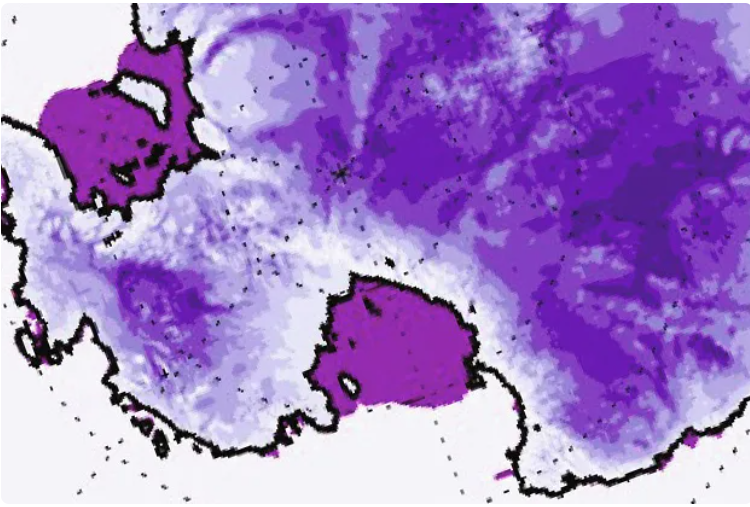A Continent On Earth Is Rising, With Potentially Major Effects
This uplift could unleash devastating 60ft sea level rise.

Antarctica's vast and icy expanse has always played a significant role in Earth's climate. One of the lesser-known processes affecting this frozen continent is post-glacial uplift, a phenomenon reshaping the land as the ice that once weighed it down diminishes.
Depending on human actions in the coming years, this process could significantly influence future global sea levels, mitigating or exacerbating the problem.
Post-glacial uplift occurs when the immense weight of ice sheets is reduced, allowing the land beneath to rise. This is similar to how a sponge regains its shape after being squeezed.
In Antarctica, where ice loss has been accelerating, this rebound effect is happening faster than expected. Scientists have recently discovered that this rapid uplift could either slow down or speed up the rate at which Antarctica contributes to global sea level rise.
Recent research highlights the importance of understanding these changes. The stakes are high, with nearly 700 million people living in coastal regions worldwide.
The potential costs of rising sea levels could reach trillions of dollars by the end of this century. Therefore, comprehending the complex dynamics of Antarctic ice melt is crucial for predicting and preparing for the future impacts on global coastlines.
A team of researchers from McGill University, Ohio State University, and other institutions have been studying the Earth's mantle beneath the Antarctic ice sheet.
They found that the mantle in certain areas is unusually soft, allowing the land to rise more quickly as the ice melts. This finding was unexpected, as such changes are typically thought to occur over thousands of years, not within mere decades.
1950s map showing Antarctic ice sheet levels.
 science.org
science.orgUsing advanced 3D modeling, the researchers simulated how different ice melt and land uplift scenarios might impact sea levels. If global warming is kept in check, Antarctica's contribution to sea level rise could be as low as 1.7 meters by 2500.
However, if global warming continues unchecked, sea levels could rise by as much as 19.5 meters, a catastrophic increase.
The critical factor is the balance between ice sheet retreat and land uplift. If the ice melts faster than the land can rise, more water will be added to the oceans, accelerating sea level rise. Conversely, if the melt slows, the uplift could help preserve more ice, potentially reducing the overall impact on sea levels.
This research underscores the urgent need to reduce greenhouse gas emissions. The faster the planet warms, the more severe the consequences, particularly for low-lying coastal areas and islands.
Some regions, like those in Kiribati, are already feeling the effects. Rising sea levels have inundated villages, contaminated water supplies, and threatened local agriculture.
Additionally, the loss of critical ecosystems, such as wetlands, which act as natural barriers against erosion and flooding, will exacerbate the situation. As these natural defenses are lost to rising waters and human infrastructure, the impact on coastal areas will become even more severe.
Antarctic sea ice levels have been deficient this year and last.
Sea level rise estimates from 2000 to 2150, comparing low-emission scenarios on the left and high-emission scenarios on the right.
 science.org
science.orgGlobal sea ice extent is at a record low...
This study emphasizes the interconnectedness of Earth's systems. Reducing fossil fuel use and lowering carbon emissions can help slow the melting of Antarctic ice, allowing the land beneath to rise more. This could ease some of the severe impacts of rising sea levels due to climate change.
Understanding the rise of Antarctica's land as the ice melts is crucial for predicting future sea level increases. Although there are still uncertainties, particularly in regions like West Antarctica, it’s evident that taking action now to reduce emissions can play a significant role in safeguarding our coastlines for the future.
Expert Opinion
Refusing to share an inheritance may reflect personal boundaries or past family conflict. It's not always selfish - sometimes, it's about self-respect. Refusing to share an inheritance may reflect personal boundaries or past family conflict. It's not always selfish - sometimes, it's about self-respect.
How we reviewed this article:
We strive to provide accurate and helpful information in every story. To ensure transparency and credibility, we've referenced reputable sources that help support the context or claims made in this article.
-
• Mayo Clinic. (n.d.):https://www.mayoclinic.org/
-
• Psychology Today. (2023):https://www.psychologytoday.com/us
-
• American Psychological Association. (2022):https://www.apa.org/news/
-
• Smith, L. (2023). "When family and money collide." Journal of Family Psychology:https://www.mayoclinic.org/
-
• Center for Financial Wellness. (n.d.):https://financialwellness.org/
